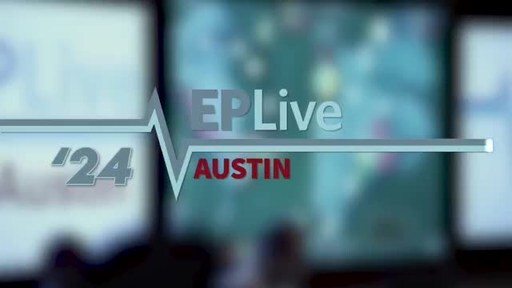Texas Cardiac Arrhythmia Institute at St. David's Medical Center first in U.S. to treat patient in study to evaluate balloon ablation catheter for treating Atrial Fibrillation
News provided by
Texas Cardiac Arrhythmia Institute at St. David’s Medical Center13 Feb, 2019, 10:08 GMT
AUSTIN, Texas, Feb. 13, 2019 /PRNewswire/ -- The Texas Cardiac Arrhythmia Institute (TCAI) at St. David's Medical Center recently performed the first procedure in the U.S. using the new HELIOSTAR Multi-electrode Radiofrequency (RF) Balloon Ablation Catheter as part of the STELLAR study. The study is designed to evaluate the safety and effectiveness of the catheter in treating intermittent atrial fibrillation (A Fib), the most common type of irregular heartbeat.
Rodney Horton, M.D., an electrophysiologist at TCAI, treated the first patient in the study with Andrea Natale, M.D., F.A.C.C., F.H.R.S., F.E.S.C., executive medical director at TCAI.
"The new balloon catheter could potentially make it easier and faster to isolate the pulmonary veins in order to treat A Fib," Dr. Horton said. "It is unique because it conforms to any pulmonary vein anatomy and allows us to control electrodes individually to deliver tailored energy during ablation."
The HELIOSTAR RF Balloon Ablation Catheter has 10 electrodes, which allow electrophysiologists to deliver different levels of energy depending on the tissue during lesion creation. In addition, the balloon design makes it possible to isolate pulmonary veins with a single application of RF energy.
"The catheter design has the potential to overcome the limitations of current balloon ablation catheters," Dr. Natale said. "Current balloon-based technologies often require the use of multiple sizes of balloons, which carries risk and can be time consuming. This system has one balloon that can adjust to whatever size is required, resulting in shorter procedure times."
Up to 640 patients in as many as 40 clinical sites worldwide will be enrolled in the STELLAR study.
It is estimated that 33 million people worldwide are living with A Fib, which can lead to blood clots, stroke, heart failure and other heart-related complications.
Media Contacts:
Tina Shively or Erin Ochoa
Elizabeth Christian Public Relations
512.472.9599




Share this article